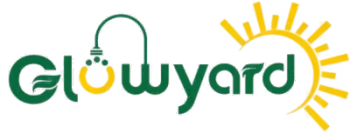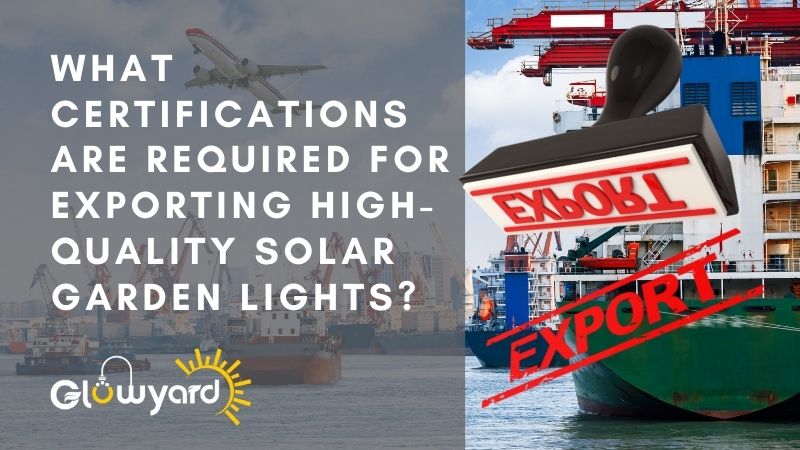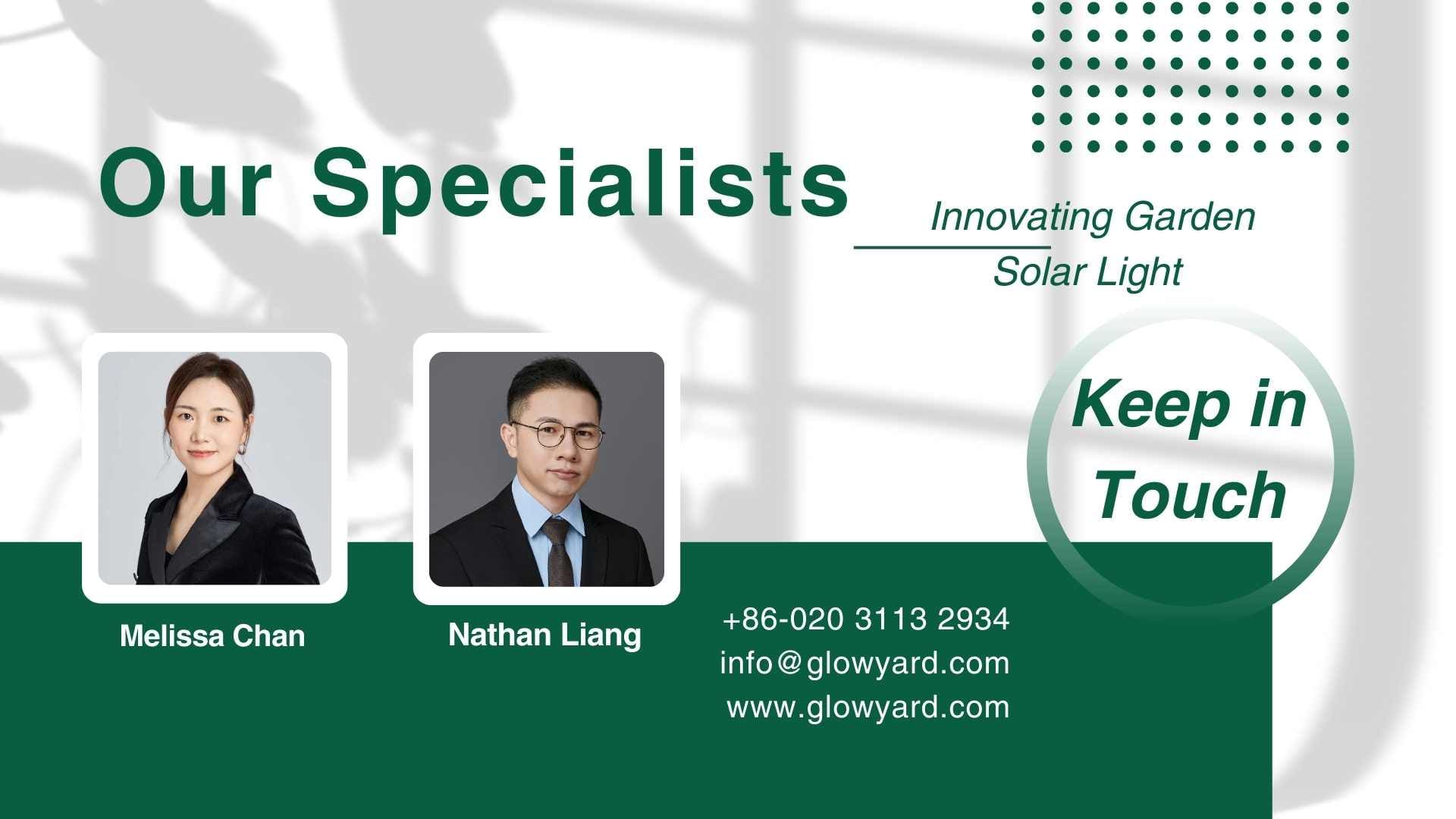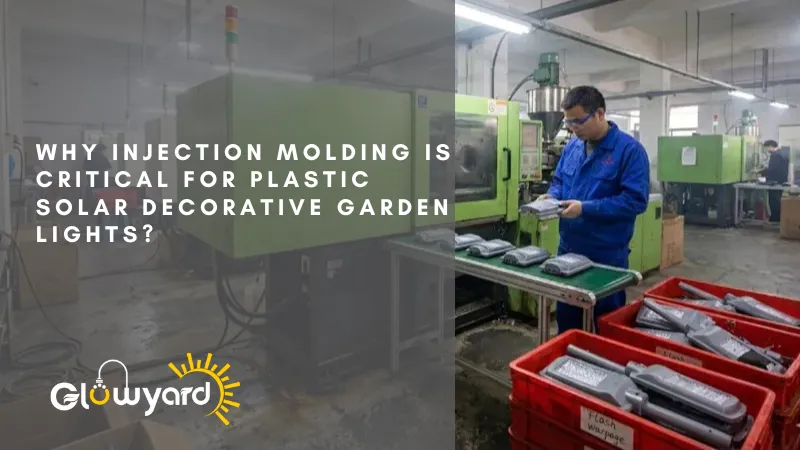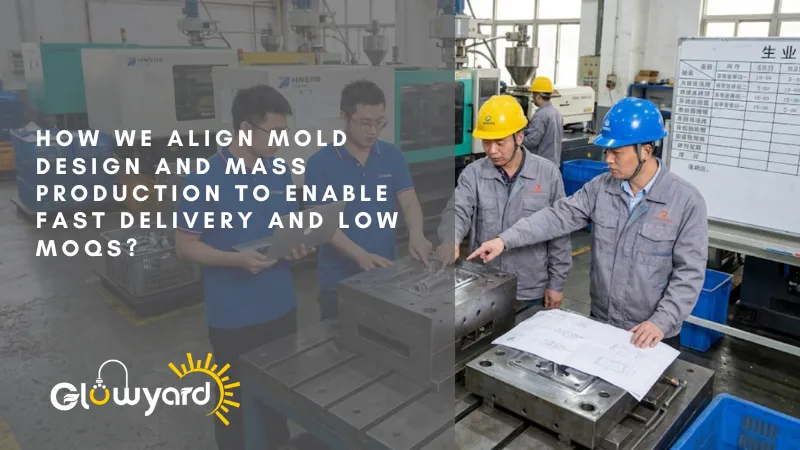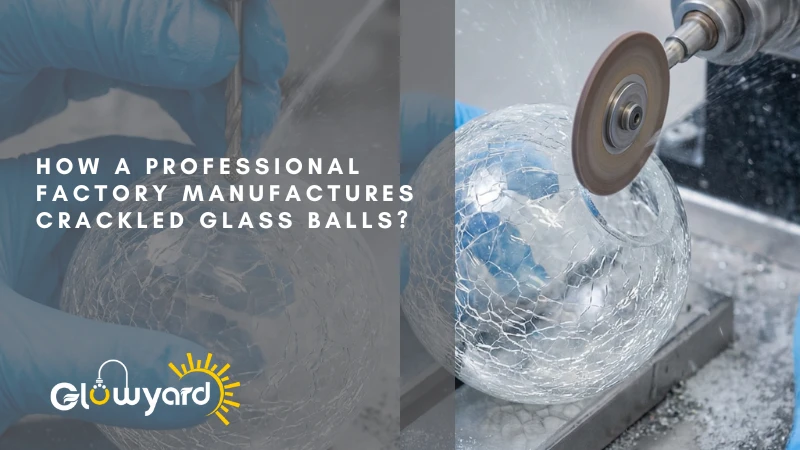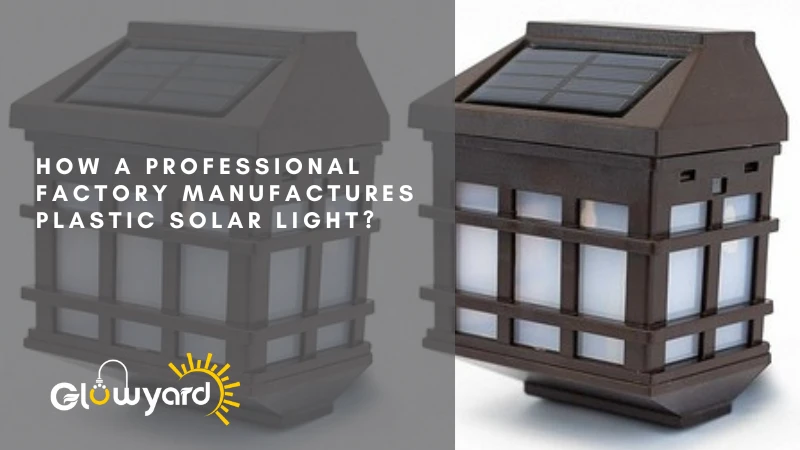What Certifications Are Required for Exporting High-Quality Solar Garden Lights?
Global buyers often ask me: “Are you a certified solar garden light manufacturer? Do your solar garden lights meet international certification standards?” That question makes perfect sense — after all, certifications are the backbone of trust in international trade.
In this article, I’ll share exactly what certifications are required for exporting solar garden lights, how they affect your market access, and how we, as a factory manufacturer, ensure your compliance and peace of mind.
Certifications are not just formalities — they protect your brand, improve compliance success, and make it easier to sell solar garden lights in global markets.
For more details on what certifications and Standards Should A Manufacturers Comply With, please check on this post :"What Certifications and Standards Should Reputable Chinese Iron Solar Light Manufacturers Comply With?"
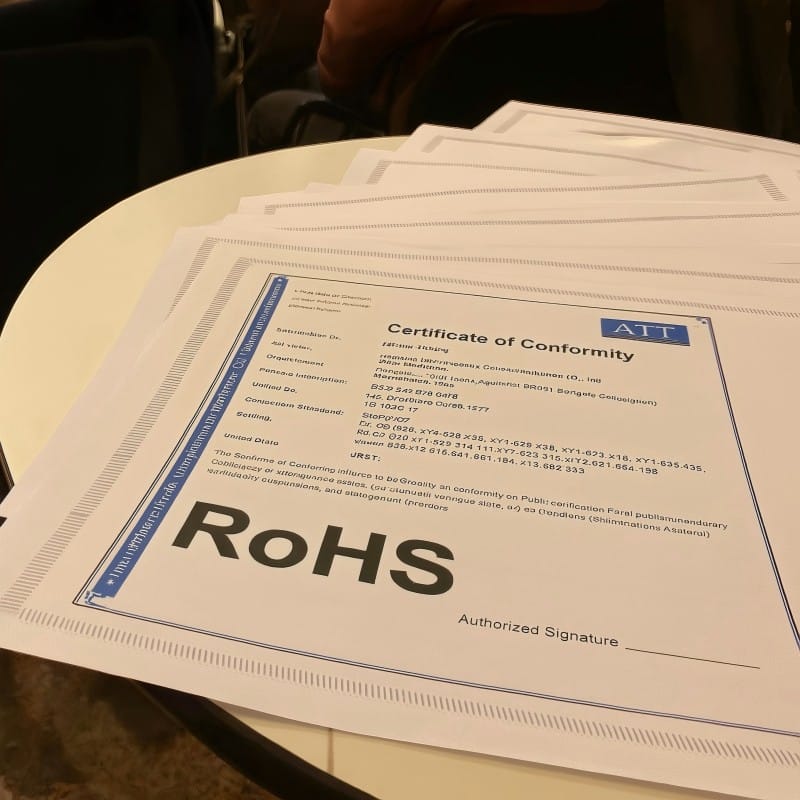
Solar Light Rohs Certification Documents
Certifications tell your buyers, authorities, and customers that your product is safe, reliable, and environmentally responsible. Let’s explore why they matter, what they are, and how we deliver them with every Glowyard shipment.
Why Certifications Are So Important for Solar Garden Lights?
Certifications are more than a checkbox. In global trade, they prove that a product meets safety, environmental, and technical standards set by each target market. Without them, a shipment can be held, fined, or outright rejected. And for distributors, the stakes are even higher: non-compliant products can damage brand reputation, lead to customer returns, or trigger legal risks.
For importers, wholesalers, and private-label retailers, certifications reduce market entry risks and serve as proof of product quality and trustworthiness.
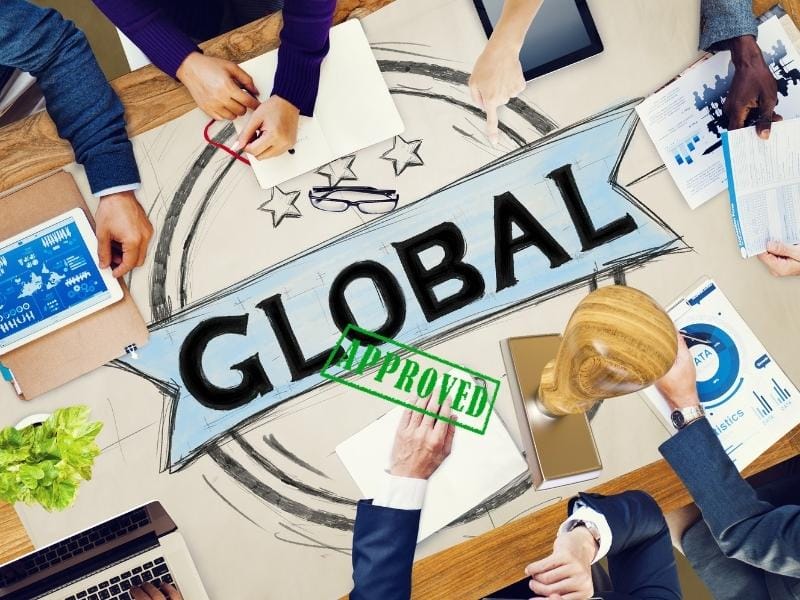
Global Trade Compliance
What Are the Key Certifications for Exporting Solar Garden Lights Globally?
We ship solar garden lights to dozens of countries, so we have experience navigating complex compliance systems. Below are the six most important certifications every serious buyer needs to understand.
CE Certification (Europe)
Is CE certification mandatory in Europe?
Yes. The CE mark confirms the product complies with EU safety, electromagnetic compatibility (EMC), and environmental standards. It is legally required for all solar garden lights sold in the EU.
Why It Matters:
| Benefits of CE | Explanation |
|---|---|
| Legal Market Entry | Required to sell in Europe |
| Product Safety Proof | Meets EU low voltage and EMC directives |
| Environmental Assurance | Aligns with EU eco-design principles |
Recommended post for reading: Why CE Certification Matters for Solar Garden Lights: Essential for Safety and Quality?
RoHS Directive
Why does RoHS matter for solar lighting?
RoHS ensures products do not contain harmful substances like lead, mercury, or cadmium. This protects both users and the environment.
Why It Matters:
- Confirms use of safe, eco-friendly materials
- Required in EU and often requested in North America
- Supports corporate ESG initiatives
Recommended post for reading: Do Solar Garden Lights Need RoHS Certification? A Complete Guide to Environmental Compliance?
FCC Certification (USA)
Do solar lights need FCC approval to enter the US market?
Yes, especially if they contain electronic components like sensors, microcontrollers, or wireless systems. FCC ensures the product does not cause electromagnetic interference.
Why It Matters:
- Legally required for all electronic products in the US
- Prevents radiofrequency issues in homes and public areas
- Boosts product credibility for American buyers
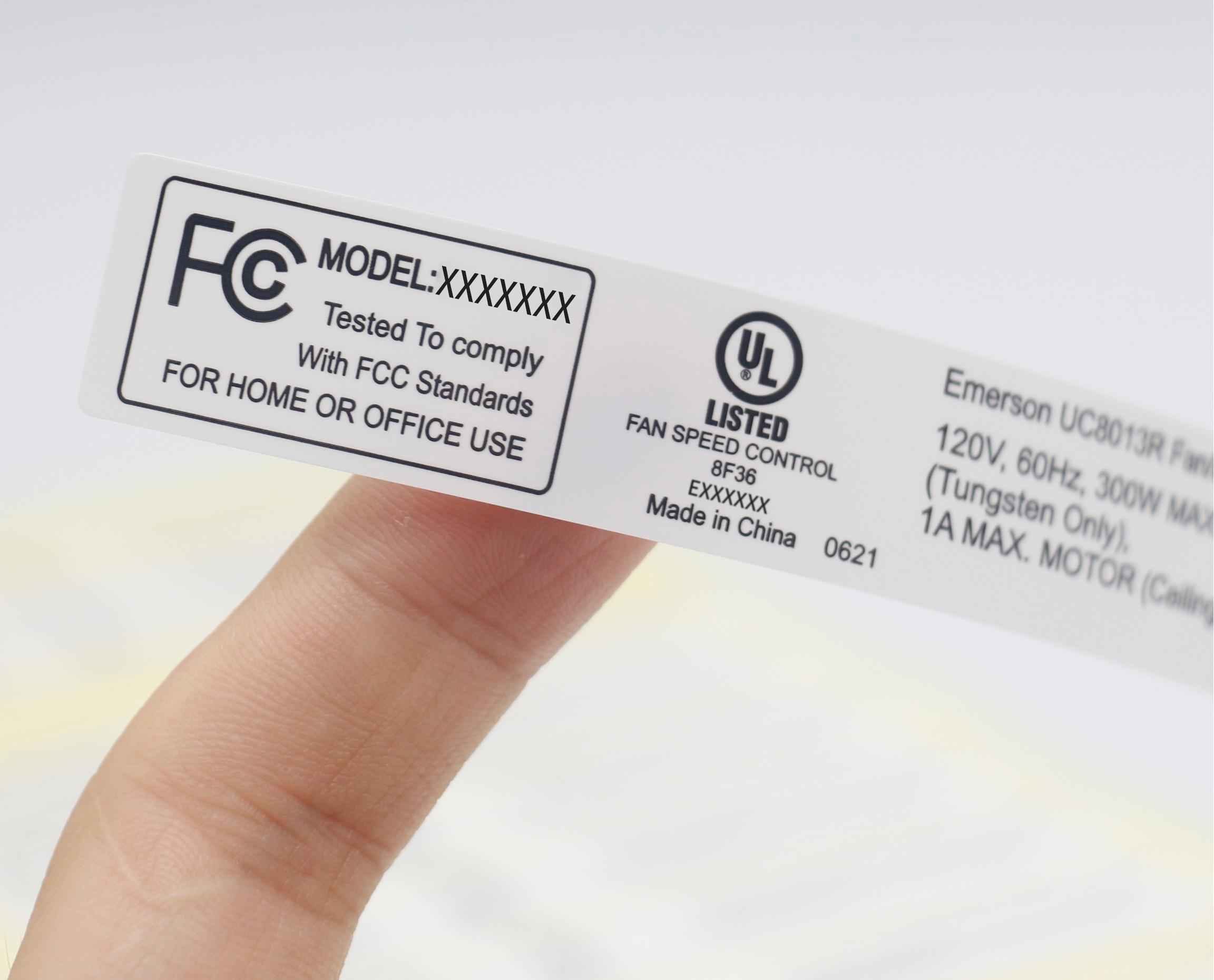
FCC label, UL listed
UL 8800 Safety Standard
Is UL 8800 necessary for professional buyers?
It’s not mandatory, but highly respected. UL 8800 is the gold standard for lighting safety in horticulture and outdoor environments. It verifies electrical and fire safety for commercial-grade use.
Why It Matters:
- Preferred by high-end and institutional buyers
- Reduces product liability risks
- Covers flame retardancy, electrical safety, and overheating protection
IP44 and Above Rating
What does IP rating mean for solar lights?
IP44+ means the product is water-resistant and dust-tight, which is essential for outdoor use. Without this, products fail quickly under rain, snow, or dust.
Why It Matters:
- Essential for durability and long-term performance
- Protects your brand from product failure complaints
- Supports marketing claims about "all-weather design"
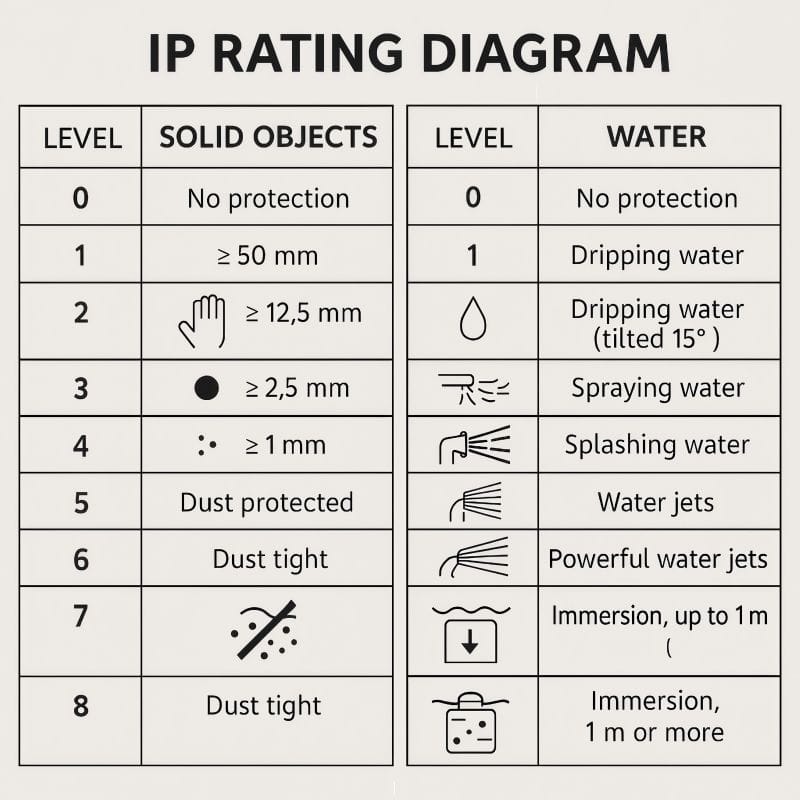
IP Rating Diagram
🔧 Understanding IP Ratings: Real-World Examples
IP (Ingress Protection) ratings define the level of protection a product has against solids and liquids. Let’s take a closer look at two commonly used IP ratings in the solar garden light industry.
🔹 IP44 – Basic Outdoor Protection
What it means:
- 4 (Solid Protection): Protected against solid objects larger than 1mm, such as wires or small tools.
- 4 (Water Protection): Protected against splashing water from any direction.
Real-world example:
A decorative solar lantern designed for placement under covered patios or balconies. It can handle light rain or humidity but is not suitable for heavy rain or direct hose spray. Ideal for areas with partial exposure to weather.
Typical usage:
- Garden wall lights
- Porch lights
- Solar lanterns under roofed spaces
🔹 IP65 – High-Level Outdoor Protection
What it means:
- 6 (Solid Protection): Completely dust-tight — no dust can enter the enclosure.
- 5 (Water Protection): Protected against low-pressure water jets from any direction.
Real-world example:
A durable solar path light installed along garden walkways or driveways. It’s suitable for all-weather outdoor environments, including heavy rain or water spray during cleaning.
Typical usage:
- Solar stake lights in open gardens
- Motion-sensor solar flood lights
- Commercial-grade solar bollard lights
✅ Tip: When choosing solar garden lights for full outdoor exposure, always look for IP44 or higher to ensure long-term performance and safety.
Energy Star (Voluntary but Valuable)
Does Energy Star matter in the solar lighting category?
Yes, especially in North America. It proves the product is energy-efficient, reducing electricity use and helping brands meet sustainability goals.
Why It Matters:
- Adds value for eco-conscious markets
- Opens access to government and green procurement contracts
- Helps marketing with energy-saving claims
What Kind of Documentation Is Required for Certification?
Getting a certificate is just part of the process. Real compliance means preparing full documentation.
At Glowyard, we prepare:
- Technical files (wiring diagrams, schematics)
- Third-party lab test reports (SGS, TUV, Intertek)
- Declaration of Conformity (DoC)
- User manuals and safety instructions
- Full inspection reports from in-house QC and third-party audits
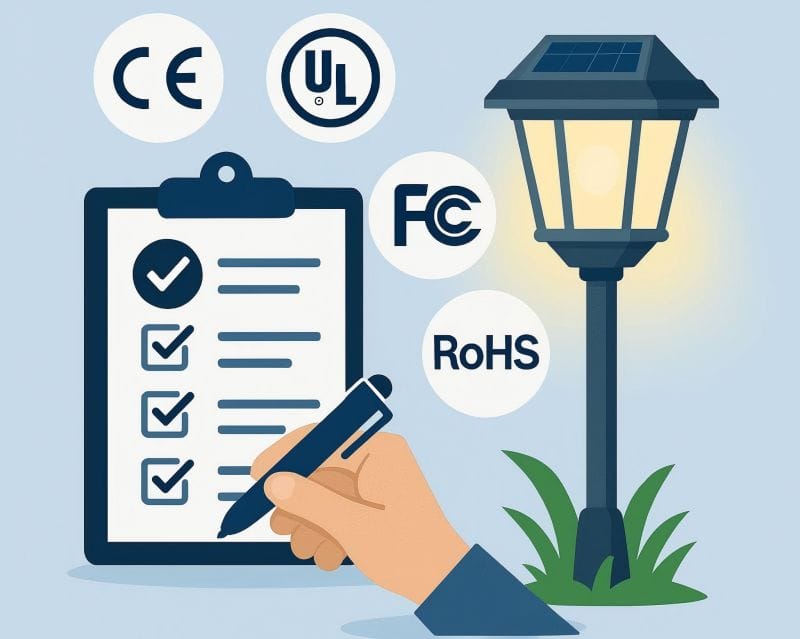
Solar light, certifications
How Do Certifications Reflect the Quality of Our Manufacturing?
As a solar light manufacturer with over a decade of experience, certifications are embedded in every part of our production process — from sourcing to shipment.
Our Compliance Track Record:
| Strength | Details |
|---|---|
| Over 300+ Certified Models | Solar garden, wall, string, resin stake lights |
| Full Export Experience | Europe, North America, Australia, Russia |
| Quality Inspection | In-house QC + SGS / TUV / Intertek |
| OEM Support | Private-label packaging + documentation |
| Timely Support | Real-time file access for buyer compliance audits |
We don’t just provide certificates — we help our B2B partners pass audits, enter new markets, and avoid shipment delays.
How Can Buyers Be Confident in a Supplier’s Certification Claims?
This is a very real concern. Many buyers have experienced false documentation or outdated test reports. We’ve had partners share stories of suppliers forging RoHS certificates or sending invalid CE reports.
At Glowyard, we offer:
- Instant access to certificate IDs
- Direct links to third-party lab reports
- Support during customs clearance
- Factory and file audits (by buyer or third party)
We believe transparency is the best foundation for long-term partnerships. You should never have to guess whether your products are compliant — we make it obvious.
Conclusion: Certification Is Not Optional — It’s a Competitive Advantage
If you’re sourcing solar garden lights, certification is more than a formality. It’s a sign of quality, responsibility, and readiness to enter global markets. At Glowyard, we go beyond basic compliance — we help you minimize risks, increase market confidence, and sell products that meet every standard your market demands.
As a factory-direct OEM/ODM supplier with 5 production lines and export experience in 30+ countries, we support your business with certified, high-quality, eco-friendly solar lighting.
📩 Want to check certifications before placing an order?
We’ll send you our full certification pack. Contact us today at info@glowyard.com or visit www.glowyard.com
